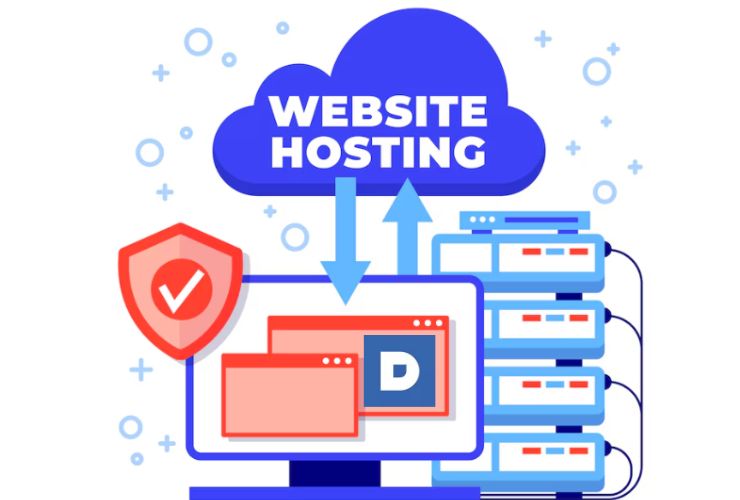DotNetNuke or DNN is a robust open-source content management system designed professionally to create high-performance, scalable, and customizable websites. Gaining wide popularity among businesses for feature-rich portal and intranet development besides public-facing applications, optimum results can only be obtained by DNN if proper hosting is obtained for the right hosting environment that will ensure optimum performance, scalability, and security.
This guide provides further details on hosting needs and considerations for DNN, so you can set up the best environment possible for your website’s prosperity.
DNN Complete System Requirements for Hosting
Hosting a website requires that the server environment must meet several technical requirements for efficient and effective operation. Here are some of the most important system specifications.
1. Operating System
Since DNN is a NET framework, it requires the host environment to be on Windows-based server
- Minimum Requirement: Windows Server 2012.
- Recommended: Windows Server 2016 and later version for optimal performance and support.
2. Web Server
DNN uses a Microsoft Internet Information Services (IIS) to host the platform
- Minimum Requirement: IIS 8.0 or later.
- Optional: To get maximum benefits of DNN, Enable ASP.NET, Static Content, Request Filtering, and HTTP Redirect.
3.NET Framework
It will use the framework.NET.
- Minimum Version Requirement:.NET Framework 4.8 and higher.
- ASP.NET Core Support: Optional This is for complete utilization of more well-developed features of the framework.
4. Database
DNN will need a robust database to control and manage its content and configurations.
- Minimum requirement: Microsoft SQL Server 2012
- Recommended: SQL Server 2016 and up. Supports: Express, Standard and Enterprise.
5. Hardware Requirements
Ensure that the hosting server has an adequate amount of resources so that no hassle arises while ensuring smoothness.
- Memory: 4 GB RAM 8+ GB RAM in case of a high traffic volume sites
- Processor: Dual-core or more
- Disk Space: 1 GB for the minimal installation
- At least 10 GB in case of storing content, extensions, and log files
6. Bandwidth
A high-speed internet connection is required to ensure that the process of traffic flow is smooth. The content has to flow out without any blockage.
Essentials when Choosing a DotNetNuke Hosting Partner
The host that supports DNN needs counts for much. Here are the essentials:
1. DNN Compatibility
Your hosting company should provide:
- Windows Server with IIS
- Microsoft SQL Server for database purposes
- Latest.NET Framework releases
2. Performance Improvements
- SSD Storage. This implies that your site will read and write better than normal hard disks
- High Bandwidth. Your visitors will receive fast content delivery, even during peak times
3. Security Options
- SSL certification. All communications will be secure.
- Regular backup services. Your site will never be compromised by losing valuable data
- DDoS protection for advanced cyber-attacks.
4. Scalability Options
Ensure that the hosting provider has scalable plans as your website will expand in terms of traffic and functionality.
5. 24/7 Technical Support
24×7 technical support with DNN expertise should be available for speedy resolution of any issues that might arise.
Types of Hosting for DNN Sites
Choose your type of hosting based on your project size, budget, and requirements for scalability:
1. Shared Hosting
- Budget-friendly but very resource-limited.
- Recommended for small projects or personal projects.
2. VPS Hosting
- Devoted resources, and more in control.
- Suited for a medium-scale enterprise
3. Dedicated Hosting
Guaranteed usage of a specific server, which therefore delivers the best performance at the same time customized Apt for large-sized firms or any high-traffic sites
4. Cloud Hosting
- High flexibilities and scalabilityElegant for a business experiencing fluctuating traffics or rapid growth
Best Practices for DotNetNuke Hosting
To improve performance as well as reliability for your website, use the following;
Always update everything-from your DNN to its extensions, and up to the server’s software in order to be compatible and safe.
- Optimize SQL Server: You can do indexing, query optimization, and database maintenance for the optimization of performance.
- Enable Caching: Try to use the caching mechanism because of the reduction in server load while loading a page.
- Schedule regular backups for safety reasons, in case there may be some errors and cyber attacks, so that it would be easier to recover your website.Use Google Analytics and server monitoring software to monitor uptime, loading speed, and traffic.
Actually, the very backbone of a successful DNN-powered website comes from well-configured hosting, and this can be achieved through meeting requirements, choice of the proper hosting type, and best practices. To put it shortly, that is optimal performance, security, and scalability; if you are investing in a reliable hosting solution made for DNN, it means that the user experience on your website will improve, and management will be much easier.
Contact Us Today













 Database Development
Database Development












































